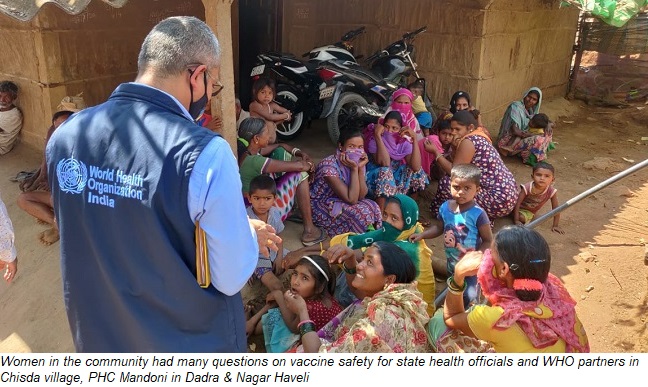Dadra and Nagar Haveli: Working with communities to raise vaccine acceptance
Description
When the vaccination of people above the age of 60 years and those 50 and above with comorbid conditions began in India on 1 March 2021, there were few takers among the older population living in Dadra & Nagar Haveli (DNH) district in the union territory of Dadra & Nagar Haveli and Daman and Diu.
What was keeping them away was a rumour that those who get vaccinated would die within two years. The rumour spread quickly through word of mouth among villages with large tribal populations in DNH and in the neighbouring districts Valsad, Navsari and Dang in Gujarat.
The tribes living in DNH are Varli, Konkani and Dhodia, with primary health centre (PHC) Mandoni serving mostly people from the Varli tribe. The village residents are mainly small farmers or factory workers. Social media connectivity is low among the older population.
Despite mobilization efforts to encourage people to get vaccinated by the government health staff — medical officer, auxiliary nursing midwives, ASHAs or community health volunteers — and anganwadi workers, there was low or sometimes no coverage in certain areas in the first weeks of March.
To increase acceptance, the state government took a decision to work with gram panchayat (village council) representatives to address vaccine hesitancy in the community. The Director Medical Health Services asked district nodal officers to conduct meeting at village level with the help of the PHC medical officers and gram panchayat members.
Read more on WHO India website
Additional languages

DETAILS
Organisation
Emergency
Region
Keywords

